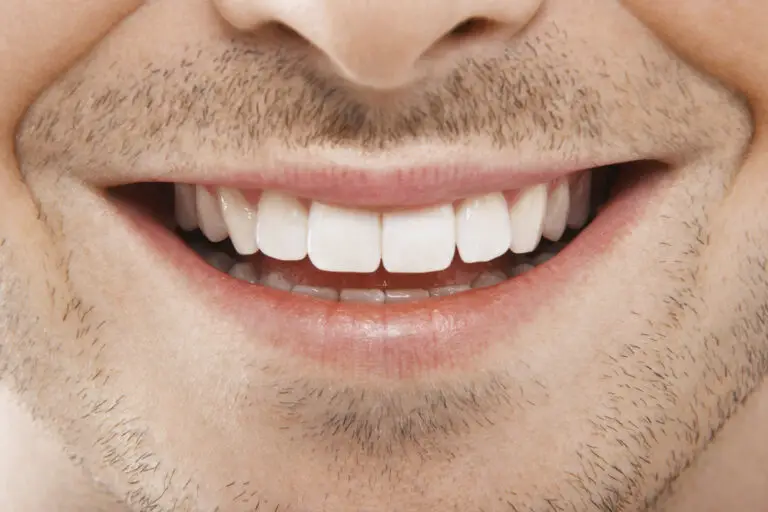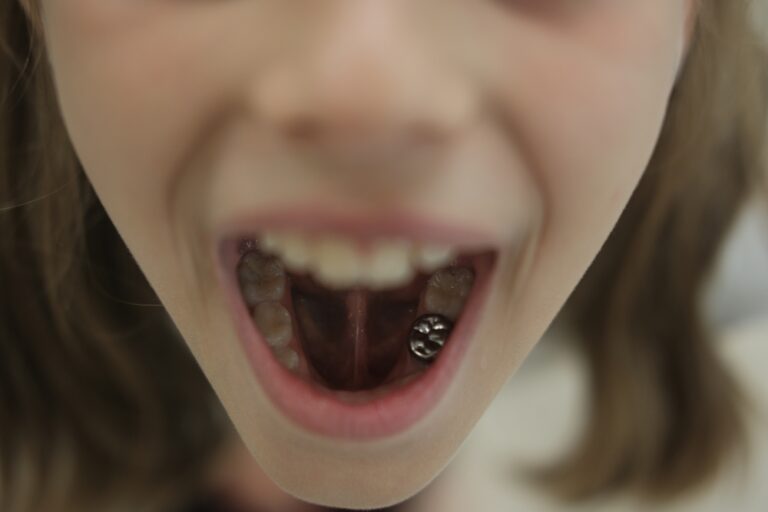Having sensitive teeth can be extremely uncomfortable and disruptive to daily life. The shooting pain when eating or drinking something cold is hard to ignore. Even breathing in cold air can set your teeth on edge. This tooth sensitivity is usually caused by exposed dentin – the tissue just beneath the hard enamel that covers your teeth. When the enamel erodes or wears away, the softer dentin underneath is exposed, resulting in sensitive teeth prone to pain and discomfort. The tiny tubules that run through dentin conduct hot, cold, acidic, sticky, and sweet stimuli from the mouth to the nerves inside the tooth, causing sharp pains and irritation. Luckily, there are several ways to help calm those aggravated tooth nerves and get relief from dental sensitivity.
Causes of sensitive teeth
Sensitive teeth occur for a variety of reasons:
Receding gums
Gums naturally recede over time with brushing and flossing, exposing more of the tooth surface and roots. With less protective gum tissue covering them, the dentin and cementum underneath become more susceptible to external stimuli that trigger nerves. Even mild recession can lead to sensitivity.
Gum disease
Inflamed, sore, and infected gums from periodontal disease can also cause receding gums and exposed tooth roots. Gum disease affects the tissues around the teeth, damaging the ligaments and bone that support the teeth and hold them securely in place. As these tissues break down, more of the teeth are uncovered and nerves are exposed.
Cracked or broken teeth
Cracks or chips that form in the enamel outer layer can let external stimuli reach the dentin and pulp. Cracks are very common culprits of unexplained sensitivity that comes on suddenly. They allow rapid stimulation of the nerves.
Brushing too aggressively
Overzealous brushing with excessive pressure over time literally scrubs away protective enamel. This abrasive wear causes thinning enamel and dentin exposure near the gumlines.
Tooth grinding or clenching
Chronic grinding or clenching wears down the enamel from the constant force and friction. This often happens at night during sleep, leading to awakening with sensitivity. The excessive sustained pressure strains the enamel over time.
Acidic foods and drinks
Frequent consumption of acidic foods and drinks like citrus fruits, tomatoes, wine, and soda can erode enamel. Acids chemically break down the mineralized enamel layer, especially when teeth are exposed to acids for prolonged periods.
Whitening treatments
Tooth whitening procedures and products that use peroxides can make teeth more permeable and prone to sensitivity. The peroxides temporarily make enamel more porous, allowing more rapid stimulation of the nerves.
Dental procedures
Dental work like fillings, implants, crowns, and tooth extractions can cause some localized sensitivity that resolves as healing occurs. Irritation to the nerves during treatment can linger temporarily.
Plaque buildup
When plaque is left on teeth after eating sugary or acidic foods, bacteria produce acids that dematerialize enamel over time. Plaque also irritates gums and can expose tooth roots.
Home remedies for sensitive teeth relief

If you’re dealing with dental sensitivity, try these simple home remedies for relief:
Use a desensitizing toothpaste
Look for toothpastes containing ingredients like strontium chloride, stannous fluoride, or potassium nitrate. These work by numbing nerve pathways or blocking the ends of the dentin tubules to reduce pain signals. Brush gently twice per day, taking care not to damage enamel further. Give the toothpaste several weeks of use to take full effect.
Try a fluoride mouth rinse
Fluoride rinses and gels help remineralize eroded enamel and make it more resistant to sensitivity triggers. Fluoride interacts with minerals in saliva to rebuild the enamel layer. Swish gently for 60 seconds twice a day after brushing.
Drink plenty of water
Staying well hydrated helps stimulate saliva flow, which naturally helps neutralize acids in the mouth, wash away irritants, and coat teeth. This buffers the effects of sensitivity triggers. Drink water regularly throughout the day and sip some after eating.
Avoid trigger foods and drinks
Pay attention to which temperatures and foods consistently exacerbate your dental pain and try to minimize them. Common triggers are very hot or cold foods/drinks, acidic foods like citrus fruits and tomatoes, sugary and sticky foods, and carbonated beverages.
Chew sugar-free gum
Chewing gum for 10-20 minutes after eating generates more saliva to help clear acids and food debris. Opt for xylitol gum varieties to help prevent cavities too. The act of chewing also firm ups gum tissue.
Take a daily calcium supplement
Calcium supports enamel strength and remineralization. Ask your dentist for a recommended daily supplement. Get calcium also from dairy, leafy greens, nuts, and fish.
Use a baking soda paste
Mix a pinch of baking soda with water into a paste-like consistency and gently apply it onto sensitive areas using a soft brush or cotton swab. Rinse thoroughly after 1-2 minutes. Repeat once or twice per week.
Invest in a soft-bristled toothbrush
Choose a brush with ultra-soft nylon bristles, like an American Dental Association approved electric toothbrush. Avoid hard bristle types that can abrade enamel and damage gums. Always brush gently in circular motions.
Wear a nightguard
Wearing a custom nightguard prevents grinding and clenching that can literally grind down enamel. These protect sensitive teeth at night when grinding is worst. Have your dentist make a sturdy, well-fitted nightguard.
Use sensitive toothpastes
These toothpastes contain compounds that either plug up dentinal tubules or block transmission of nerve impulses. Potassium nitrate helps calm nerve activity, while stannous fluoride or strontium chloride work by sealing off tubules.
Professional treatments for sensitivity
 For more severe, chronic tooth sensitivity, make an appointment with your dentist to discuss and try these in-office treatment options:
For more severe, chronic tooth sensitivity, make an appointment with your dentist to discuss and try these in-office treatment options:
Professional desensitizing treatments
Dentists can apply medicated desensitizing varnishes, gels, bonding resins, or sealants that penetrate into the microscopic dentin tubules and seal them off. These professional products work more effectively than over-the-counter toothpastes and provide 3-6 months of sensitivity relief before needing reapplication.
Fluoride treatments
Higher concentration in-office fluoride applications help strengthen enamel and make teeth more resistant to sensitivity triggers. These liquid fluoride gels are applied using trays that are custom-fitted to your teeth and worn for several minutes per treatment once or twice yearly.
Dental sealants
Thin plastic coatings can be applied by dentists to the pits and grooves on the chewing surfaces of back teeth to create a barrier that blocks external stimuli from reaching the inner dentin. Sealants help prevent sensitivity on teeth prone to decay and last for several years with proper oral care.
Root canal therapy
If sensitivity is severe and relentless, it may be caused by an inflamed or dying nerve. A root canal procedure can remove the inner nerve and pulp tissue of the tooth, eliminating the source of pain. The inner tooth chamber is cleaned, sealed with a rubber filling, and capped with a crown.
Gum grafts and crown lengthening
If gum recession is extensive, your dentist may graft tissue from the roof of the mouth over areas of exposed roots to protect them. Crown lengthening can reshape longer tooth crowns for more enamel coverage. Both procedures reduce future sensitivity.
Tooth splinting and bonding
Bonding resins applied to seal cracks or restore worn spots help insulate nerve pathways. Splinting stabilizes loose, mobile, or grinding teeth that develop sensitivity. These restorations shield nerves and strengthen teeth.
Dental crowns or veneers
Caps and laminate coverings block sensitivity triggers from penetrating into the dentin. Crowns fully encase teeth while veneers cover the visible front surface. Both strengthen and beautify teeth.
Good oral care for preventing sensitive teeth
Practicing excellent oral hygiene and making some simple lifestyle changes can help deter or minimize tooth sensitivity:
- Brush teeth gently twice daily with a soft or extra-soft bristled toothbrush and fluoride toothpaste, taking care not to scrub enamel too vigorously
- Floss teeth once daily to remove plaque buildup before it can damage enamel
- Get thorough dental cleanings every 6 months to remove stains and tartar deposits
- Limit consumption of acidic foods and carbonated or sugary beverages; drink them quickly rather than sipping
- Rinse with water after consuming acidic drinks or foods
- Drink lots of water throughout the day to wash away food particles and acids
- Don’t brush immediately after eating acidic foods, which softens enamel
- Have any defective fillings or fractured teeth repaired promptly by your dentist
- Wear a custom nightguard if nighttime teeth grinding is suspected
- Stop smoking, which stains teeth and reduces blood flow to gums
FAQs about soothing sensitive teeth pain
Q1: How long does it take for the pain from sensitive teeth to stop after using desensitizing treatments?
You may get some degree of relief immediately from at-home remedies like desensitizing toothpastes. But it typically takes 1-4 weeks of consistent, twice daily use for the full effect. In-office professional treatments often provide quicker results within a few days, along with longer lasting reduction in sensitivity.
Q2: Why do my teeth hurt when I breathe cold air?
Inhaling cold air can cause sharp pains from temperature-sensitive teeth. The cold stimulates fluid changes inside the microscopic dentin tubules that activate nerve signaling. Exposed areas of dentin and cementum are most prone to this pain with cold air breathing.
Q3: What temperatures trigger the most pain in sensitive teeth?
Any significant hot or cold temperature swings can set off nerve twinges in sensitive teeth. However, cold foods, drinks, and air tend to cause the most intense pains, while warmth provides relief. Even lukewarm foods can be uncomfortable.
Q4: Is tooth sensitivity always a sign of a dental problem needing treatment?
Tooth sensitivity is sometimes a symptom or warning sign of an underlying dental issue that needs attention. It can accompany problems like dental decay, leaking fillings, cracked teeth, gum disease, worn enamel, or dental abscesses. Schedule an exam with persistent sensitivity.
Q5: Why are my teeth super sensitive during pregnancy?
Hormonal changes during pregnancy can cause inflammation and irritation in gum tissues, which may expose more of the tooth surfaces to sensitivity triggers. Using a soft brush, desensitizing toothpaste, and rinsing with warm salt water helps alleviate discomfort.
Conclusion
Sensitive teeth can certainly be frustrating to deal with and disrupt daily functions like eating and drinking. Thankfully, Relief typically comes quickly through at-home remedies like fluoride and desensitizing toothpastes, fluoride rinses, chewing gum, and avoiding triggers. For severe or chronic sensitivity issues, visiting your dentist for professional treatments like medicated varnishes, sealants, restorations, or grafts may be necessary to shield nerves from pain stimuli. With proper diligent care, you can keep dental discomfort to a minimum and maintain healthy, resilient teeth.







